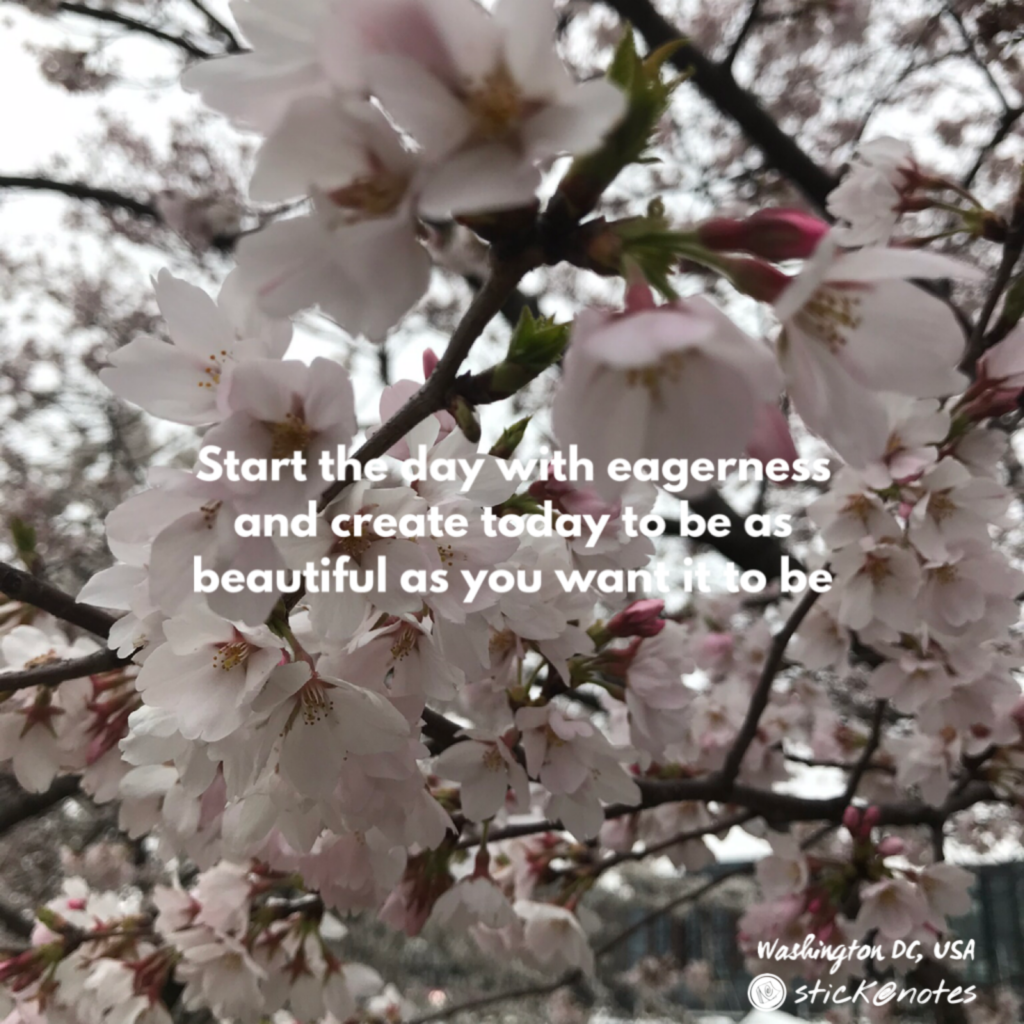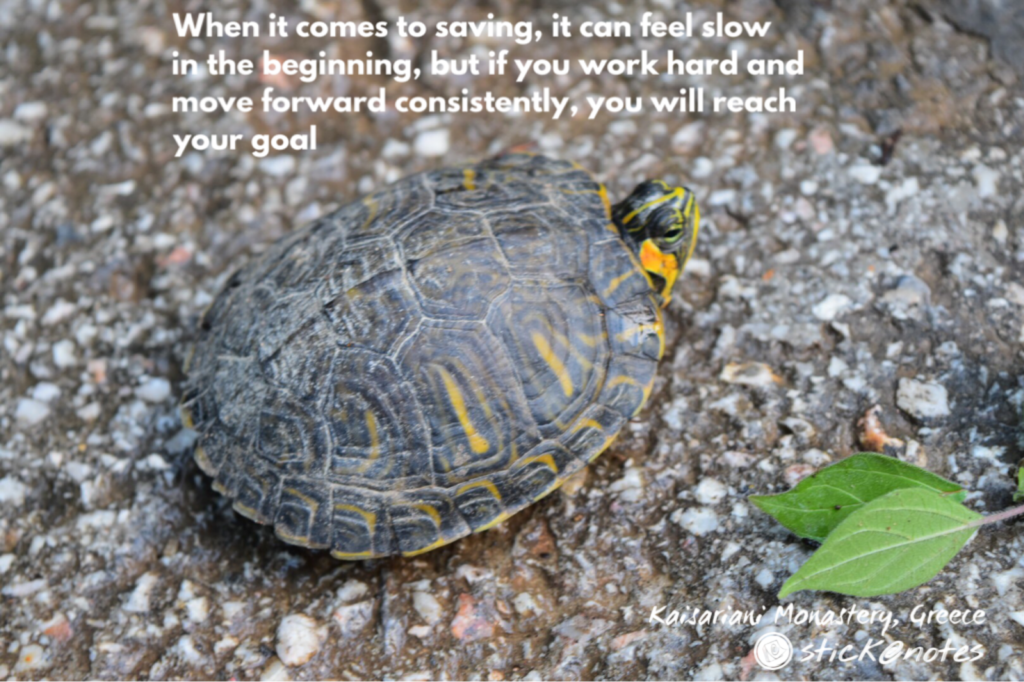-
Four Things To Start Each Day With Eagerness
Sometimes it is hard to wake up in the morning with great enthusiasm when we are down, especially during difficult time like the current pandemic, where one negative news after the other keep coming through our smart-phone feed and social media.
The pandemic has caused so much change and hardship to many people and businesses. For many, stay-at-home order without any jobs can be overwhelmingly stressful and depressing. The financial hardship that comes along with losing a job can affect overall physical and emotional health.
While certain challenges can pull us down, there are four things we can do to start each day with some kind of eagerness, maintain our spirits, and end the day feeling good about what we have accomplished.
1. Put something you love and are most excited about first thing in the morning
Think about something you love to do and most excited about, and put that activity first thing in the morning. Setting the most enjoyable routine in the morning would give you the excitement to get out of bed and start the day right.
2. Be thankful
Think or list at least four things to be thankful about every morning. When your brain is busy being thankful, it is hard to think about something negative. Being thankful gives out the most powerful energy to switch your emotions from feeling down to feeling blessed. Being thankful gets rid of all kind of negative emotions like annoyance, sadness, fear, or unfairness. It gives you both enjoyment of the present moment and positive energy to move forward.
3. Use and share your gifts and talents
Think about one or two things you are really good at and enjoy, do something about it during the day and share your gifts with your colleagues, friends or family. Let’s say you are good at computer/database system at work where most employees are not computer savvy, share your knowledge with your co-workers and help them when they are having a hard time with it. If you are good at cooking, prepare a meal that can be enjoyed together with your family. If you are talented at organizing, plan to organize one small area in the house or at work each day. Basically, use your gifts and what you enjoy most as daily routine. You would have the excitement to do what you love, and in the same time share the results with others. Imagine the smiles you can generate for yourself and people around you!
4. Make each day as learning opportunity
Be ready and excited to learn something new each day. When we are open to learn continuously, we will look at everything in life entirely from a different angle. We wouldn’t be worry so much what challenges we face ahead. We are set to learn and grow from them, grow to be a stronger, wiser, and better version of ourselves!
So yes you can do it. Stop dragging yourself out of bed. Start the day with eagerness and create today to be as beautiful as you want it to be!

-
Doing The Right Thing
Have you ever worked so hard to impress your boss, only to find that he/she dismissed what you did. And even criticized you for spending too much time on low priority job?
It certainly is upsetting when we choose to work hard to make ourselves look good, and not getting the responses we expect. Likewise, it is difficult to make choices when we are presented with two opposite forces.
There is nothing wrong when we occasionally expect acknowledgment or appreciation as an incentive to do better. Making choices due to fear of missing out (FOMO) or to gain others’ approval, however, often lead to stress and disappointment.
Everything we do in life is a choice. Those choices determine the kind of life that we are going to live. As a result, it is important to make good choices that are aligned with our values and life purpose. In other words, instead of doing something to follow the crowd, we should make choices that feel good, and feel right.
How do we know if we do the right thing?
Our conscience often guides us to know the difference between right and wrong. Doing the right thing also goes hand in hand with being true to our ethical values and principles.
To illustrate this, let’s look at a couple of examples. Let’s say your highest value is spending time with your family. Your boss offer you a promotion with good money but you have to be away from your family for extended period of time. You may crave for a better pay but you know that the money at this point is not worth going against your value, and doing the right thing is to say no to that offer.
Likewise, when you put transparency as one of your principles, you may find it stressful working for a company that has a culture of keeping employees in the dark. You can do the right thing proposing and strategizing more transparent communications, or move to another company that shares similar values.
Life is about making choices. Use your gifts, do your part, do the right thing, and don’t worry what everyone else is doing. And you will uncover the ability to make good choices in all aspects of life.

-
The Secret of Balance
We often hear that nothing is perfect; and it is not possible for a person to have it all. Bob is so successful in his career but his family is a mess. Katie is very smart and full of energy. She works more than 60 hours a week but her mental and physical health start to go downhill when she is in the late forties. We start to think that it is normal to be that way: we can’t have it all.
If we look into the above scenarios more carefully, the common denominator for Bob and Katie is that they spend too much focus in one aspect of life. And eventually, they experience negative consequences in the other areas of their life.
To illustrate the negative consequences of the extremes we need to look into all aspects of our life more carefully.
The Four Aspects of Life
There are four most important aspects of life where each one of them is tightly interconnected with the others: Self and spiritual, health (mind and body), family and friends, work and finance. Putting too much time and focus in one area is a surefire way to create problems in the other three. When we have all four aspects of life at a balanced state, we have reached a state where we have it all because our life is in harmony.
Self And Spiritual – The Foundation
In the midst of our busy life, we tend to put our “self and spiritual” wellbeing at a lower priority level. In reality, this aspect of life is the most important foundation to build a balance life. The way we understand and see our “self” determines how we approach the other aspects of life. Contented self is mindful, aware of feelings and thoughts that lead to happiness; and those that need changing within, and not without.
Giving time to self is essential for physical, emotional and mental health. It reduces stress, provides more positive energy and eagerness to work on the next tasks in front of you.
Setting aside “me” time each day can range from doing activities that you enjoy, such as praying, reading, listening to music, walking, to practicing mindfulness or meditating.
Practicing mindfulness, or self awareness, actually should be the priority of “me” time. It gives us the opportunity to build relationship with our inner self, and brings us to spiritual wellness.
The path to spiritual wellness allows us to connect the dots between experience, challenge, and life purpose; and helps us find deeper meaning of events in life. It also allows us to feel more connected to a higher power and other creations around us. We have more clarity when it comes to making everyday choices, and our actions are more aligned to our ethical values and principles.
The more we become aware of our inner self, the clearer to see what needs changing and improvement within. As a result, practicing self awareness helps us reaching and maintaining balance in all aspects of life.
The Interconnections
The interconnections among the four aspects of life is so tight that when we practice self awareness, we can identify any imbalances before it goes too far. Below are a couple of examples illustrating the consequences of imbalances touching the four aspects of life.
When we put too much focus on work and money, we become too exhausted to spend time with family and friends, not to mention the negative effects on our physical and emotional health due to stress, lack of sleep or exercise. On the other hand, lack of focus on career development prevents us from cultivating successful career, which may impact financial stability and self confidence.
Spending too much time caring for others but not enough “me” time can lead to mental and physical exhaustion. Likewise, having too much “me” time without doing something productive and purposeful tend to make us feel empty and unfulfilled.
Life is a journey to grow and be a better version of ourselves. Learning to attain balance is a part of this growth. Keeping all aspects of life in balance is the key to live this life to the fullest. It is the key to having it all. Strive to find a balance and we will live in harmony.

-
Who Wants To Be A Millionaire?
Who doesn’t? Money can’t buy happiness, but it sure helps us get through some tough situations a little easier, and a little less stressful.
The problem is, our society does not instill the importance of setting money aside for saving, let alone investing. We are taught at school and at home to go for higher education to make more money. But sadly, we are hardly educated to manage the money we earn and be financially savvy.
We often hear people making six figure income but still living paycheck to paycheck. When we are not financially conscious, it is easy to spend all or more than we make.
Social media certainly doesn’t help. We tend to compare ourselves to what we see out there in the society. Everyone seems to have all the fun and the nicest things; and we tend to jump into the bandwagon to follow the trend. It is easy to spend extravagantly on traveling and dining out, or buying those expensive bags or shoes.
How Do We Start?
Most people think setting aside money to save and invest is not feasible because they don’t make enough. That is not true. All we need is discipline, patience, and commitment, and let the power of growth and compounding work for us.
The easiest way to save is to automatically set aside money from our paycheck to a separate saving/investment account. This way we don’t spend the money we don’t see. If we contribute to a company sponsored 401K plan, the benefit extends to paying lower tax as the money we contribute to a 401K plan is deducted from our total income. Some companies even match the first 5 – 6% of our contributions, this is like free money going to our retirement account which is too good to pass.
Consistency Over Time Is The Key
The question is, how much to set aside and contribute to our 401K or other investment account? The best way is to start with a minimum of 6% of our salary or income, and then work our way up to 15% or more. To illustrate this, assuming a reasonable long term rate of return of 9% annually, for those who make $30,000/year, setting aside 6% and 15% each paycheck takes 50 years and 40 years, respectively, to amass to a million dollar. With $75,000/year salary and setting aside 6% and 15% each paycheck takes 34 and 24 years, respectively. This example shows that despite income level, it is very possible to be a millionaire when we save and invest consistently over a period of time.
Another question is, how soon do we want to reach that goal? The choice is in our own hands. When it comes to saving, it can feel slow in the beginning, it is therefore important to start as early as possible. The more we set aside consistently, the sooner we reach our goal through the power of compounding.

